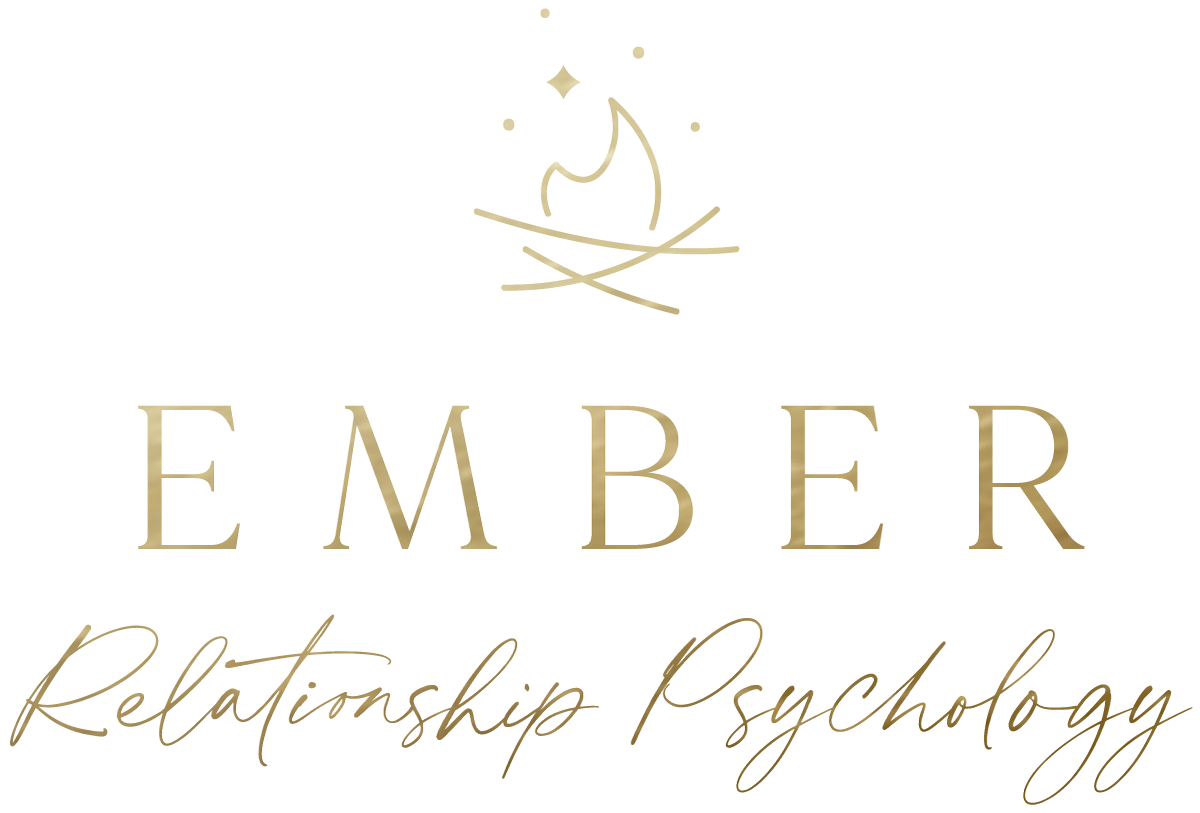3 Reasons to Fight Fair
by Amber Dalsin, M.Sc., C.Psych.
Do you want to stop feeling disrespected, unseen, unheard, or misunderstood in conversations with your partner? I know I did.
One reason why I felt that way was because of how we fought.
My heart would pound, my face getting hot while my jaw clenched. Sometimes that anger would turn to rage. I wanted to feel supported, but every little argument, even minor disagreements about dishes became destructive.
In my early 20s, I fought unfairly. Having gone through my first major heartbreak, financial betrayal, and loss, I decided I never wanted to be hurt like that again, ever. When a new partner disappointed me or let me down, I felt triggered, like I was being abandoned all over again.
Because I didn't really know how to fight fair, I would fluctuate between lashing out in anger, threatening to end my relationship, yelling, or pleading with my partner not to leave. I would shut down to protect myself before I could get hurt. The goal was self preservation – to strike first or to push away – but my destructive style of conflict was breaking down my relationships and making it more likely that I was going to be alone.
Unfair Fights Are Destructive
Destructive conflict is the biggest predictor of relationship breakdowns.
No one gets into a relationship thinking, “I can't wait until this relationship ends.”
Most of us long for relationship and love that is special and lasts. We need to protect it by avoiding toxic communication mistakes that slowly chip away at the love that we all crave.
Supportive Relationships are Fair
The second big reason to fight fair is to feel loved, respected, understood, seen, and heard. What would it be like to go out through your day knowing that if there is an issue, your partner will listen and have your back? It’s possible if you and your partner learn (individually and as a couple) how to fight fair.
Fair Fights Make for Easier Repairs
And the third reason to avoid destructive conflict is the more unfairly you fight, the harder it is to repair the rift.
A small cut can heal on its own without help. Maybe you need a little antiseptic and a bandage. But the bigger the cut, the longer it will take to heal, and often you need professional help to stitch it up. Emotional wounds are the same.
When you fight fairly and keep your emotional wounds small, they heal and repair on their own more quickly.
Choosing your fighting style
In your relationship, you can choose to do things that nurture your love and connection, keeping wounds small, even when you're upset. Or you can choose to add fuel to the destructive fire and make problems worse.
I realised that if I wanted a safe love where I felt seen, heard, respected, and understood, I had to fight fairly.
Yes, I could be angry. But I needed to communicate my anger respectfully, to protect my relationship so we could be together in the long run by not destroying each other in the short-term.
Clients often tell me that thinking and behaving differently is hard. They're right. It's work. If you’re like me and sometimes fight unfairly, I encourage you to ask yourself why.
Maybe you think it's normal
Maybe you feel it's justified - you were hurt, and now you're retaliating
Maybe you’re protecting yourself
Maybe you want your partner to prove they love you
Maybe you think your partner should know what you need
I had a lot of those thoughts when I fought unfairly. They are very common. I had to be willing to adopt new ways of thinking and behavioural strategies to fight more fairly.
For me, I had to think:
Maybe it's normal to fight unfairly, but it isn't the kind of relationship I want.
I have the power to create a healthy relationship.
I am willing to let my partner in, even if I get hurt.
I don’t want to lay in bed at night feeling guilt or shame, thinking, “I wish I did something differently.”
I can feel centred knowing that I didn't push, I wasn't being destructive, I was respectful.
It took time and effort to generate those new thoughts. There were regressions and mistakes along the way, but now I can express my anger respectfully and as a result, most of the time, my partner understands my position without anyone getting hurt. It’s also empowering to feel I'm responsible for how I communicate.
It's a team effort
My partner had work to do too. After all, we are both responsible for how we communicate.
We both had to decide that we wanted to learn to fight fairly. For that to happen, we needed to learn to prioritize and protect our relationship over our own preferences and communication style.
Why bother fighting fairly?
The first reason is to avoid destructive conflict and relationship breakdown. Instead, you want to communicate in a way that leads to greater understanding and nurtures your love.
You want to feel heard, understood, respected, and valued.
The last reason to fight fairly is to avoid making your emotional wounds bigger so they don’t need intensive intervention. Instead, we want blip mistakes, hurts so small they can be easily repaired.
For a love that understands, respects, and renews, are you willing to think to think a little bit differently, to behave a little bit differently? Are you willing to fight a little bit more fairly?
This blog is not meant to be a substitute for couples therapy or relationship counselling. This should not be construed as specific advice. See a relationship therapist in your area to address your specific problems.

